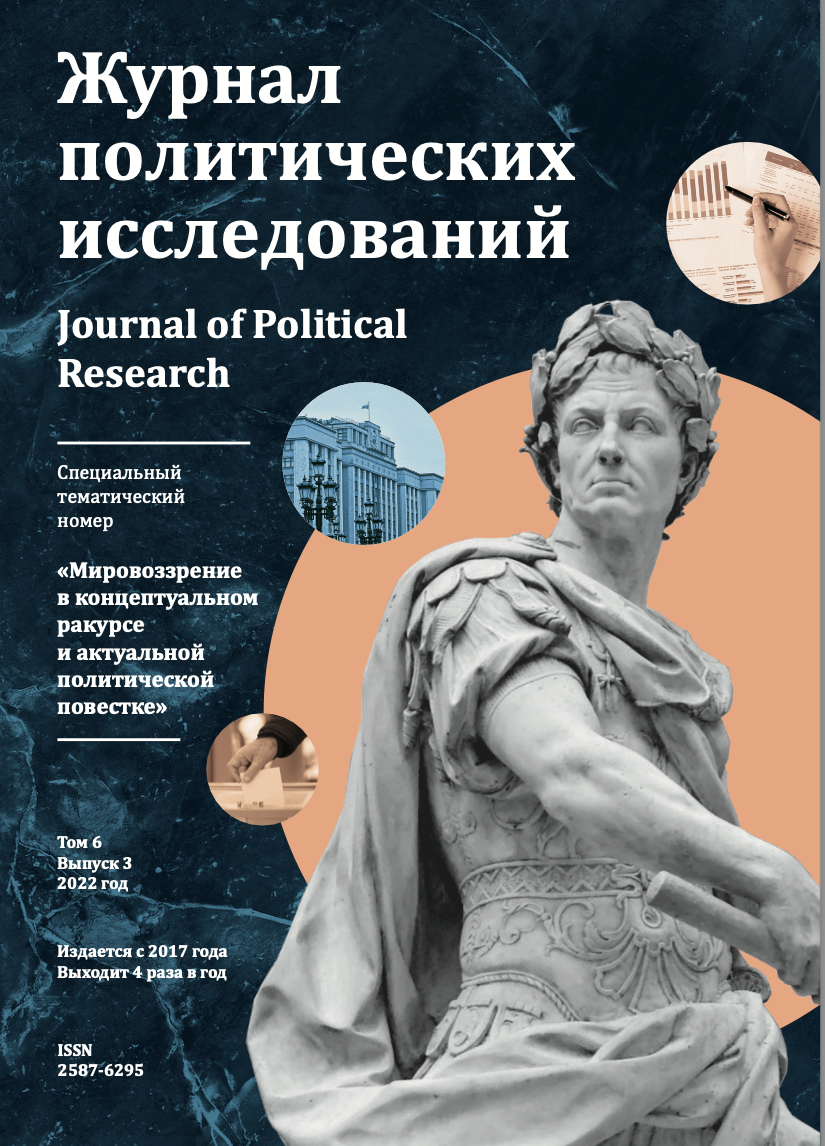Moscow, Russian Federation
As the purpose of their work, the authors chose to define scenarios for the political experiments of the smart city through the prism of the critical theory of the software of the new digital urbanism. The article invites discussion of promising areas of research in such a field as digital urbanism, which is understood as an interdisciplinary field - from political science to cybernetics and robotics - revealing the patterns of digital urbanization and the emerging sociotechnical reality underlying it. Digital urbanization is defined as digital technological transformations that significantly change the socio-political and economic landscape of cities through smart algorithms. A sketch of the critical theory of software is also proposed, rejecting the value neutrality of software, algorithms and considering smart city projects as political experiments, laboratories for adapting power techniques in the digital ecosystem, which have a political customer, as well as socio-political effects and consequences. The methodological ensemble of the work includes techniques of classical political analysis, factor analysis and trend analysis through triptych-scenario technology. The use of triptych scenario technology has helped to identify three scenarios for each trend of digital urbanization - optimistic, pessimistic and realistic. Among the most important trends of digital urbanization for the state, citizens, society and corporations are the hybridization of power, the algorithmization of power, the introduction of digital twin cities and the development of swarm intelligence. The conclusions show that the main beneficiaries of digital urbanization so far are the state and corporate actors, while citizens and their groups, despite the emergence of political hacktivists and digital citizenship projects, are in the position of only users, but not creators of a ready-made digital ecosystem of cities.
smart city, critical software theory, digital urbanism, political experiment, algorithms, artificial intelligence, power, scenarios
1. Alekseev R.A. Iskusstvennyy intellekt na sluzhbe gosudarstva: argumenty «za» i «protiv» //Zhurnal politicheskih issledovaniy. - 2020. - T. 4. - №2. - S. 58-69. - DOI:https://doi.org/10.12737/2587-6295-2020-58-69. EDN: https://elibrary.ru/TPVBSJ
2. Bykov I.A. Publichnaya politika razvitiya tehnologiy iskusstvennogo intellekta v Evropeyskom soyuze // Vestnik Moskovskogo Universiteta. Seriya 12. Politicheskie nauki. - 2024. - № 2. DOI: https://doi.org/10.55959/MSU0868-4871-12-2024-2-2-130-144; EDN: https://elibrary.ru/JBVPUW
3. Vilisov M.V. «Polya idey» dlya nauchnoy diplomatii v kontekste rossiyskogo «povorota na Vostok» // Upravlenie i politika. – 2023. – T. 2. № 3. – S. 25-45. – DOI:https://doi.org/10.24833/2782-7062-2023-2-3-25-45. EDN: https://elibrary.ru/IQEJSO
4. Volodenkov S.V., Fedorchenko S.N., Pechenkin N.M. Riski, ugrozy i vyzovy vnedreniya iskusstvennogo intellekta i neyrosetevyh algoritmov v sovremennuyu sistemu social'no-politicheskih kommunikaciy: po materialam ekspertnogo issledovaniya // Vestnik Rossiyskogo universiteta druzhby narodov. Seriya: Politologiya. – 2024. – T. 26. № 2. – S. 406-424. – DOI: https://doi.org/10.22363/2313-1438-2024-26-2-406-424. EDN: https://elibrary.ru/LWSYCV
5. Denikin A.A. Cifrovye media i proayreticheskie interfeysy: o nekotoryh osobennostyah participatornyh kommunikaciy //Dizayn SMI: Trendy XXI veka. - 2019. - № 4. - S. 189-196. EDN: https://elibrary.ru/VSPPBM
6. Zhukov D.S. Iskusstvennyy intellekt dlya obschestvenno-gosudarstvennogo organizma: buduschee uzhe startovalo v Kitae // Zhurnal politicheskih issledovaniy. - 2020. - T.4. - №2. - S. 70-79. - DOI:https://doi.org/10.12737/2587-6295-2020-4-2-70-79. DOI: https://doi.org/10.12737/2587-6295-2020-70-79; EDN: https://elibrary.ru/GPBXIA
7. Lihtenshteyn B.M., Danilov O.F., Kostyreva D.A. Umnyy gorod, vlast' i naselenie: sub'ektno-ob'ektnye vzaimodeystviya // Izvestiya vysshih uchebnyh zavedeniy. Sociologiya. Ekonomika. Politika. - 2021. - № 2. - S. 49-69. - DOI:https://doi.org/10.31660/1993-1824-2021-2-49-69. EDN: https://elibrary.ru/OLNVKE
8. Lovink G. V plenu platformy. Kak nam vernut' sebe internet. /Per. s angl. A. Kartashov, N. Kotik. - M.: Ad Marginem. 2024. - 232 s.
9. Pereslegin S.B., Korolev A.A., Shilov S.Yu. Kognitivnye predely nauchnogo myshleniya //Ekonomicheskie strategii. - 2019. - №2. - S. 44 - 55. EDN: https://elibrary.ru/VRRJGV
10. Tomin L.V. Kiberneticheskaya model' upravleniya: sub'ektivacii individov v sociotehnologicheskoy srede «umnogo goroda» // Publichnaya politika. - 2021. - T. 5. - № 2. - S. 17-28. – DOI:https://doi.org/10.31856/2541-8351_2021_5_2_17. EDN: https://elibrary.ru/FRWEBL
11. Harris Sh. Kibervoyn@: Pyatyy teatr voennyh deystviy. /Per. s angl. M.: Al'pina non-fikshn. 2020. 390 s.
12. Barns S. Platform urbanism: Negotiating platform ecosystems in connected cities. - Singapore: Macmillan. - 2020. 252 p.
13. Beer D. The problem of researching a recursive society: Algorithms, data coils and the looping of the social // Big Data & Society. - 2022. - Vol. 9. - Iss. 2. - DOI:https://doi.org/10.1177/20539517221104997.
14. Grossi G., Welinder O. Smart cities at the intersection of public governance paradigms for sustainability // Urban Studies. - 2024. - Vol. 61. - Iss. 10. - P. 2011-2023. - pDOI:https://doi.org/10.1177/00420980241227807.
15. Meijer A. Datapolis: A Public Governance Perspective on «Smart Cities» // Perspectives on Public Management and Governance. - 2018. - Vol. 1. - Iss. 3. - P. 195-206.
16. Syed Abdul Rahman S.A.F., Abdul Maulud K.N., Ujang U., Wan Mohd Jaafar W.S., Shaharuddin S., Ab Rahman A.A. The Digital Landscape of Smart Cities and Digital Twins: A Systematic Literature Review of Digital Terrain and 3D City Models in Enhancing Decision-Making // Sage Open. - 2024. - Vol. 14. - Iss. 1. - DOI:https://doi.org/10.1177/21582440231220768.
17. Vadiati N. Alternatives to Smart Cities: A call for consideration of grassroots digital urbanism // Digital Geography and Society. - 2022. - Vol. 3. - P. 100030. - DOI:https://doi.org/10.1016/j.diggeo.2022.100030. EDN: https://elibrary.ru/AUDRBJ























